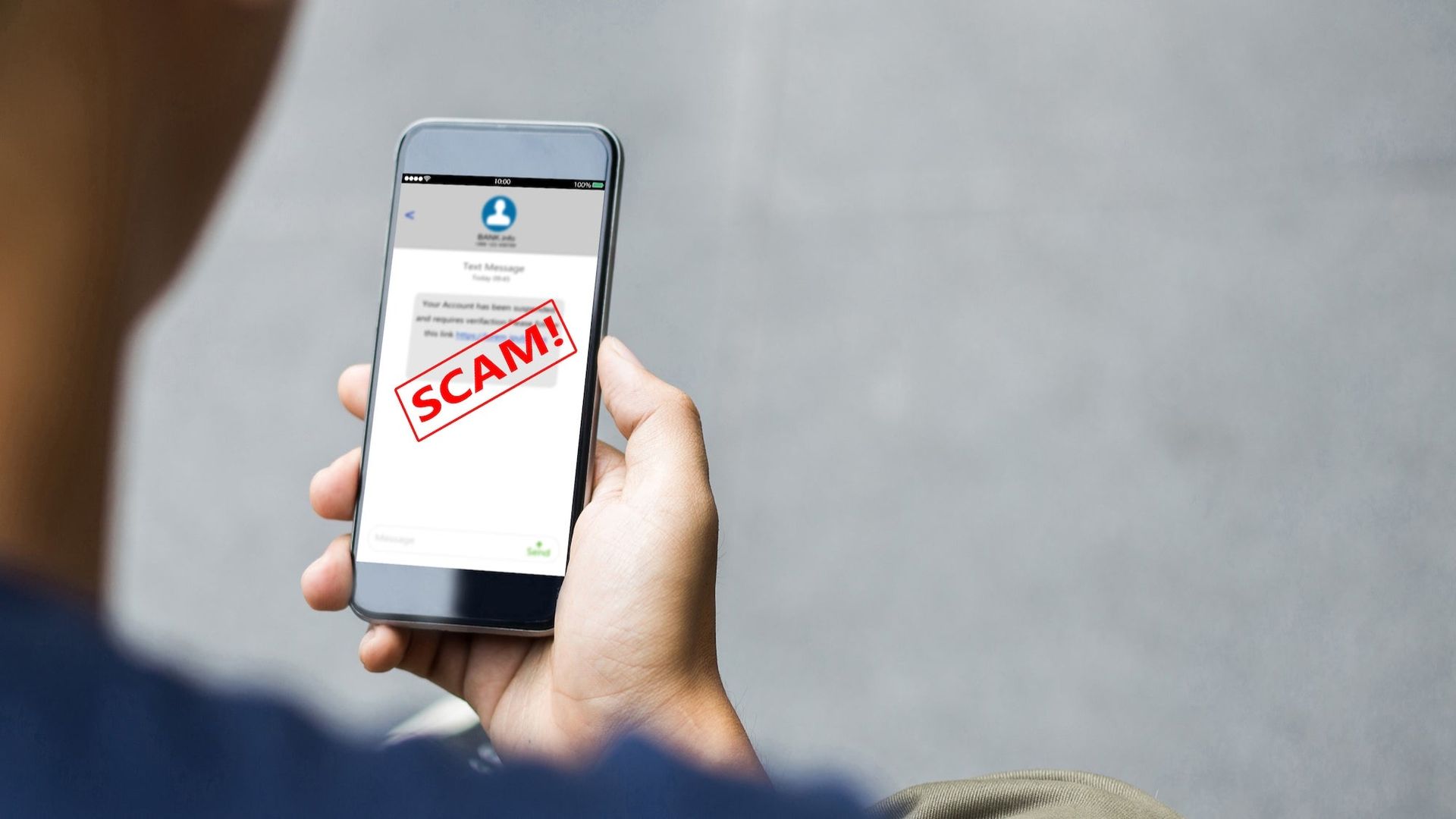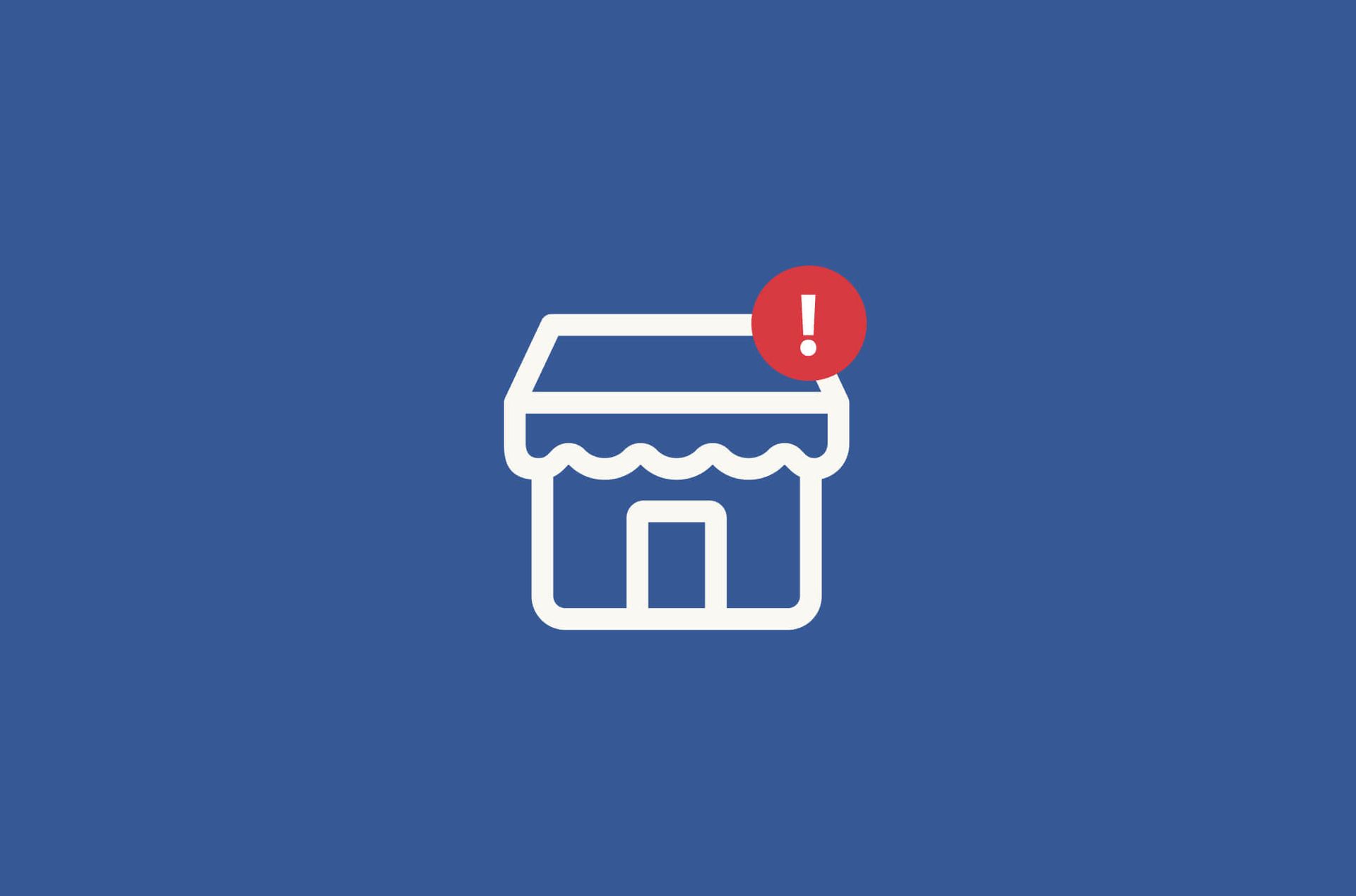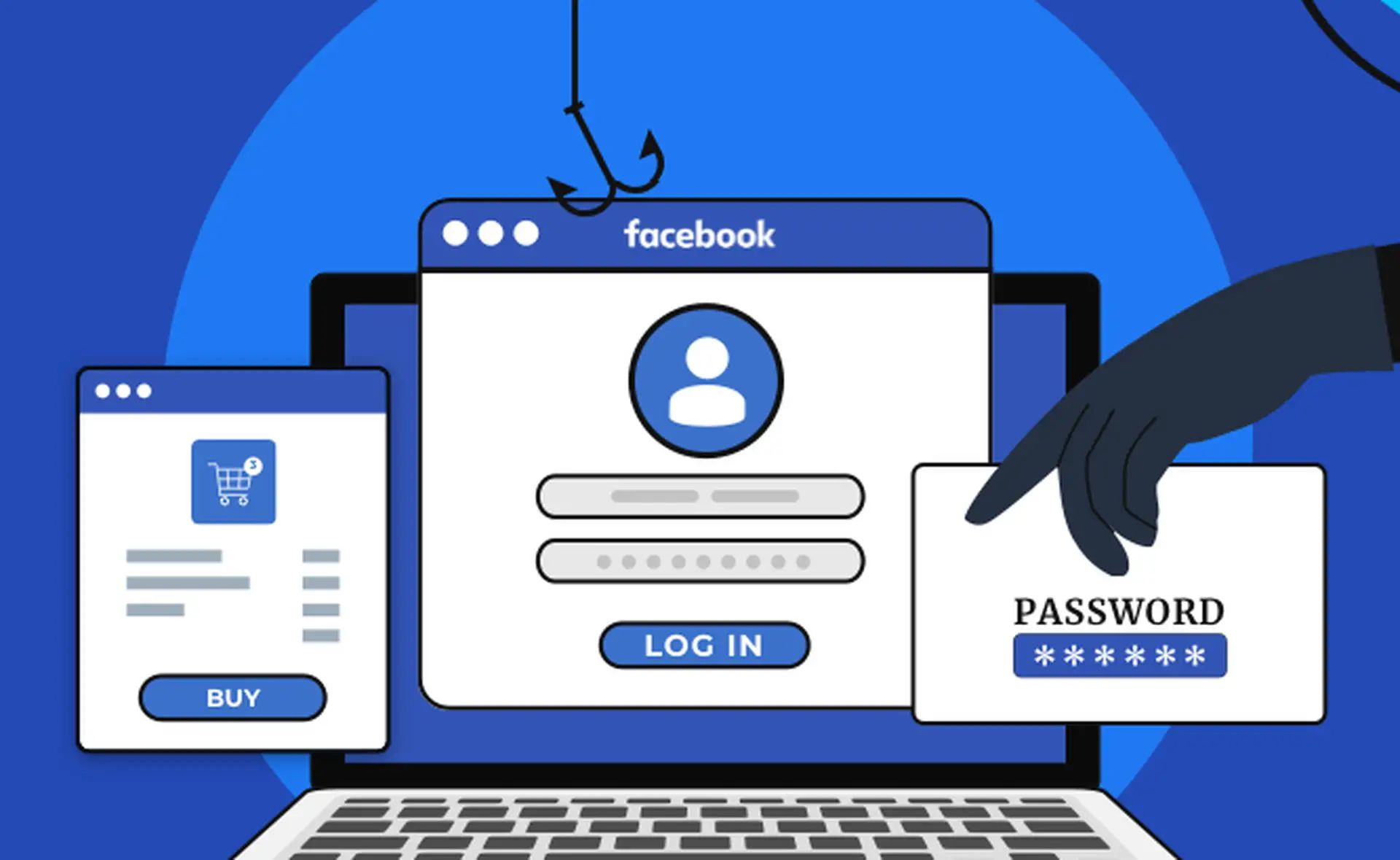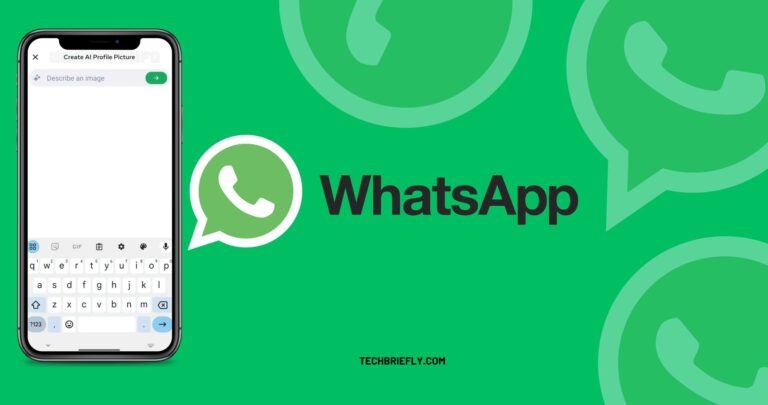In this article, we’ll talk about how to protect yourself from Facebook Marketplace scams. As the popularity of Facebook Marketplace continues to grow, so too does the risk of falling victim to scams on the platform. With an estimated 1.1 billion visitors, the online resale commerce site has become a bustling hub for buyers and sellers alike. While this is great news for bargain hunters and sustainability enthusiasts, it also means that the platform has become a prime target for online criminals.
Whether you’re a seasoned furniture flipper or a first-time buyer, it’s important to be aware of the various Facebook Marketplace scams that exist. Scammers can take on the guise of both fake buyers and fake sellers, and some may even attempt to steal your identity. But don’t let that deter you from utilizing this popular platform. By following a few simple tips and tricks, you can stay safe and enjoy the benefits of Facebook Marketplace without falling prey to fraudulent transactions.
Is Facebook Marketplace completely safe?
If you’re looking for a way to save money while buying and selling goods or services, Facebook Marketplace can be a great option. It’s particularly useful for those on a tight budget who are moving to a new city and need to furnish their home without breaking the bank. It’s also a popular platform for vintage collectors and furniture flippers.
However, as with any online marketplace, Facebook Marketplace can be a breeding ground for scammers. Meta, Facebook’s parent company, is aware of this issue and has implemented various measures to combat fraud. One of these measures is the use of verified badges on profiles, while the shopping safety guide provides valuable information on responsible commerce, scams, purchase protection, and how ratings work.
Before diving into buying or selling on Facebook Marketplace, it’s essential to read through the responsibility guide and familiarize yourself with the purchase and seller protections. This will help you to identify potential scams and avoid becoming a victim. By following these simple steps, you can make the most of Facebook Marketplace and enjoy a safe and productive experience.

Red flags: Facebook Marketplace scams
Scammers on Facebook Marketplace often play on your emotions to create a sense of urgency and convince you that you’ll miss out on a fantastic deal if you don’t act fast. This is a classic tactic used in social engineering attacks, which rely on your emotional response to bypass your rational thinking and judgment. By pressuring you to act quickly, scammers hope to avoid detection and prevent you from investigating the legitimacy of their offer.
If you come across any of these tactics while buying or selling on Facebook Marketplace, it’s important to exercise caution and avoid falling victim to these scams. The best course of action is to abandon the transaction altogether and report any suspicious behavior to Facebook’s support team. By remaining vigilant and taking the necessary precautions, you can help keep yourself and your personal information safe while using Facebook Marketplace.
When using Facebook Marketplace, it’s important to be on the lookout for scammers who use various tactics to deceive unsuspecting users. Here are some common warning signs to be aware of:
- Low prices for what should be high-ticket items: Scammers often lure people in with prices that are too good to be true, particularly for high-value items like electronics or designer clothing.
- Refusing to meet up in person for exchanges: If a seller insists on shipping an item rather than meeting up in person, it may be a red flag. Scammers often avoid in-person exchanges to make it harder to trace their activities.
- Moving conversations outside of Facebook Messenger: Scammers often try to move conversations to other platforms like email or text messages, where they can avoid Facebook’s security measures.
- Asking for payment in the form of a gift card: If a seller asks for payment in the form of a gift card, it’s likely a scam. Legitimate sellers will accept payment through secure methods like PayPal or Facebook Pay.
- Requesting deposits on items before receiving them: Scammers may ask for a deposit or partial payment upfront before sending an item but then disappear without delivering the item.
- Asking for items to be shipped before payment is received: If a buyer asks for an item to be shipped before payment is received, it’s likely a scam. Legitimate buyers will pay first and then request shipping.
- Buyers providing a prepaid shipping label: Scammers may send a fake prepaid shipping label that is worth less than the actual shipping cost, leaving the seller to cover the difference.
- Buyers overpaying then asking for a refund of the difference: Scammers may overpay for an item and then ask for a refund of the difference, hoping to trick the seller into sending the extra money back.
- Transactors without a profile picture: If a user doesn’t have a profile picture or any other information on their profile, it may be a sign that they are not legitimate users.
- Requests for your personal phone number or other information: Scammers may ask for your personal phone number or other sensitive information, which they can use to commit identity theft or other types of fraud.

Most common Facebook Marketplace scams
As the Facebook Marketplace continues to thrive, it has also become a target for scammers who prey on both buyers and sellers. These individuals utilize a variety of tactics, such as deceiving you into purchasing fraudulent goods or services, stealing your own products or services, or even committing identity theft. It’s important to stay informed and vigilant to identify these Facebook Marketplace scams and prevent yourself from becoming a victim.
Scams targeting buyers
- Fake giveaways: Have you ever been lured into a message promising you a brand-new Macbook that you supposedly won? Or have you received a link to a supposed “survey” that offers you a gift card to your favorite store? Beware, these are common tactics used by scammers to gather your personal information or even install malware on your device. It’s essential to remain cautious of any messages that direct you to external platforms, as they could be a trap to lead you into a Facebook Marketplace scams.
- Asking to be paid in gift cards: One of the Facebook Marketplace scams still in circulation involves scammers asking buyers to purchase gift cards instead of meeting in person to exchange payment for products. Unfortunately, there is no way to protect a gift card, leaving buyers scammed out of their money without ever receiving the product or service they were hoping to purchase.
- Bait-and-switch items: Facebook Marketplace scams use a bait-and-switch technique to lure in potential victims. They will advertise a product you’re interested in at an unbelievably low price. However, when you inquire about the item, they will tell you it’s suddenly “unavailable” but offer a similar, higher-priced product as a replacement.
- Faulty products: Facebook Marketplace scams often use this trick when selling electronics, particularly Apple products. To avoid becoming a victim of this Facebook Marketplace scam, it’s important to ensure that the product you’re purchasing is in good working condition before paying for it. One way to do this is to meet the seller in person and test the item, but if this isn’t possible, ask the seller to provide a video showing the product in action. For Apple products, you can request the serial number or IMEI and verify with Apple support that the product is registered to the person selling it.
- Counterfeit items: The sale of counterfeit items is a lucrative business in the world of online marketplaces. To ensure you’re getting what you pay for, it’s important to know that high-end brands typically come with certificates or stamps of authenticity. For instance, designer handbags are often accompanied by a certificate of authenticity, while jewelry may have model numbers and engravings, or the company name stamped on them. Some niche jewelry designers like Lionette even stamp all of their pieces with their company names. To avoid falling prey to counterfeiters, make sure to ask the seller to show you proof of authenticity before making a payment.
- Car deposit/advance payment scams: If you’re in the market for a car, be extra cautious when shopping on Facebook Marketplace. Scammers can advertise cars at great prices, but the vehicles may not even exist, or they may be stolen. To avoid becoming a victim, always ask for the vehicle identification number (VIN) and use reputable websites like CARFAX or AutoCheck to check the car’s history. Additionally, verify the name of the seller and ensure they have a history of successful transactions.
- Fake house rentals: Facebook Marketplace scams can also target those searching for rental properties. Scammers may list a property for rent that they don’t actually own or have the right to rent out. To avoid falling victim to this scam, it’s essential to double-check the legitimacy of the property before making any payments or commitments. One way to do this is by cross-referencing the rental property on trusted websites such as Airbnb, Vrbo, or other similar websites.

Scams targeting sellers
Using stolen credit cards to pay: It’s important to be wary of payment methods when buying or selling on Facebook Marketplace, as scammers may use fake payments to defraud you. An example of this is the overpayment scam, where a buyer sends more money than they agreed to and asks for a refund of the difference. However, once the bank discovers the fake payment, you’ll be left without the money and the product or service you offered. To avoid this, it’s best to stick to Facebook-approved payment methods such as cash, PayPal, or Facebook Checkout. These methods ensure that you receive the payment for the item sold and protect you from scammers using fake payments.
Overpayment scams: A common Facebook Marketplace scams is the overpayment scam. Here’s how it works: let’s say a buyer agrees to purchase an item from you for $100. They then send you $200, claiming it was an accident. They ask you to send back the difference, usually via an untraceable method like a gift card. The problem is, the original $200 payment was fake and will eventually be canceled by the bank. In the end, you’re out of the item you were trying to sell and the money you thought you had.
Lost package claims: Facebook Marketplace scams can also happen to sellers. One common tactic is for buyers to collect the item and then claim they never received it, essentially scamming the seller out of their money and the item. To protect yourself, consider paying to have the package tracked and signed upon receipt. While this may be slightly more expensive, it can prevent you from losing out on the entire sale.
Immediate interest: If someone contacts you immediately after you list an item for sale on Facebook and asks you to contact them through email, it’s likely a scam. Scammers often try to move the conversation outside of Facebook’s messaging system. To protect yourself, only communicate through Facebook Messenger and report and block anyone who provides a contact method outside of it.
QR code scams: It’s essential to be cautious of Facebook Marketplace scams that can lead you to phishing sites aimed at extracting your personal information. These scams are designed to deceive you into providing your sensitive data, such as bank account information, social security number, or other confidential information. To avoid falling victim to identity theft, it’s best to be vigilant and avoid clicking on links that redirect you outside of the Facebook platform. If you suspect you have been scammed or are at risk of identity theft, consider utilizing identity theft protection tools and services to safeguard your data.
Receiving a prepaid shipping label: When selling an item on Facebook Marketplace, be wary of buyers who request to send you a prepaid shipping label. This is a common scam tactic, as it gives the buyer control over verifying the delivery of the item. Once the label is used and the item is shipped, the buyer can claim that they never received the package, leaving you without both the item and the payment. To avoid this, always use a shipping method that allows you to control the verification of delivery, such as requiring a signature upon receipt or using a shipping service with tracking information.

Scams targeting both
- Fake Facebook accounts: One way to spot fake Facebook accounts is to check if they have a profile picture and a network of real friends. Many fake accounts have few or no friends, no profile picture, or are newly created. Therefore, it’s essential to verify the legitimacy of a buyer or seller’s account before engaging in a transaction.
- Sending an item before payment is received: Beware of one of the most common Facebook Marketplace scams where scammers trick you into shipping the item before receiving payment. They may claim that they need the item urgently for a special occasion and promise to pay once you provide the tracking number. However, once you send the item, the payment never arrives, leaving you with no item and no money. To avoid falling victim to this scam, always wait until the payment is received and verified before shipping the item.
- Requiring you to click a link to fill out more information: This type of scam is known as a phishing scam, which involves tricking individuals into providing personal information such as usernames, passwords, or financial information. In Facebook Marketplace, scammers may attempt to direct you to a form that requests sensitive information such as your social security number or credit card information. However, it’s important to remember that a legitimate buyer or seller doesn’t need this type of information to complete a transaction.
- Asking you to provide verification codes to prove your identity: Another Facebook Marketplace scam to watch out for is the Google Voice number scam. Scammers will create a Google Voice number and ask you to provide a verification code that will allow them to link the Google number to your actual phone number. This gives them the ability to authenticate themselves as you, without your knowledge or consent.
- Asking for your phone number: In the world of Facebook Marketplace scams, one way scammers can gain access to your account is through two-factor authentication. A hacker can reroute authentication to themselves by using your name and phone number, giving them access to your private information. To protect yourself, it’s recommended that you stay within Messenger for all transactions and not offer up any private information. Additionally, using a password manager can help you keep track of complex passwords, making it harder for scammers to guess them.
Avoiding Facebook Marketplace scams
Although Facebook Marketplace scams are a real concern, there are several measures that can be taken to ensure a safe transaction. Here are some important reminders to consider before engaging in any Marketplace activity:
- Regularly review your bank and credit card statements to quickly catch any unauthorized charges or suspicious activity.
- Avoid anything that seems too good to be true, especially if the price is significantly lower than market value or the seller is pressuring you to act quickly.
- Check the seller’s badges and reviews to verify their credibility and history on Facebook Marketplace.
- Communicate strictly on Facebook Messenger to avoid scams that direct you to other messaging apps or email.
- Use two-factor authentication with your Facebook page to prevent unauthorized access to your account.
- Use a trusted payment method that protects you like cash, PayPal, or Facebook Checkout. Avoid methods like wire transfers or Venmo that offer limited protection and are commonly used in scams.
- Double-check the other person’s identity by verifying their profile information and asking for a government-issued ID if necessary.
- Meet in a populated, well-lit space to minimize the risk of harm or theft. Avoid meeting at night or in secluded areas.
- Bring everything you need to make sure you’re getting a working product, such as chargers, accessories, or tools to test the item. Don’t be afraid to inspect the item thoroughly before making the transaction.
If you think you’re scammed on Facebook Marketplace: What to do?
Unfortunately, even if you take all the precautions, it’s still possible to fall victim to Facebook Marketplace scams. In case you find yourself in a fraudulent transaction, don’t panic. There are steps you can take to reduce the damage. Firstly, contact your bank and inform them about the unauthorized transaction. Then, file a report with your local law enforcement agency. Finally, report the scam to Facebook so that they can take appropriate action.

Also if you want to get more information about the Best AI writing generators that will revolutionize your content strategy, click here.
How to report a buyer scam?
To report a buyer who you suspect is trying to scam you on Facebook Marketplace, you can follow these steps:
- Open the item listing where the buyer contacted you on your screen.
- Next to the buyer’s name, click on “See More.”
- Click on the ellipsis (the three dots) next to their name.
- Click on “Report Buyer.”
- Click on “Scam” and then follow the on-screen instructions to file the report.
How to report a seller scam?
To report a fraudulent seller on Facebook Marketplace, you can follow these steps:
- Go to the listing you suspect to be fraudulent.
- Click on the name of the seller to access their profile.
- Click on the ellipsis (the three dots) located at the top right of the page.
- Select “Report seller” from the dropdown menu.
- Choose the “Scam” option from the list of report reasons.
- Follow the on-screen instructions to provide additional details and submit the report.
Conclusion
In conclusion, Facebook Marketplace can be a great platform to buy and sell items, but it’s important to be aware of the potential scams that can occur. By following the safety tips and precautions mentioned earlier, you can reduce the risk of being scammed. And in case you do fall victim to a scam, it’s crucial to take immediate action by reporting the scam to Facebook, contacting your bank, and filing a report with local law enforcement.




